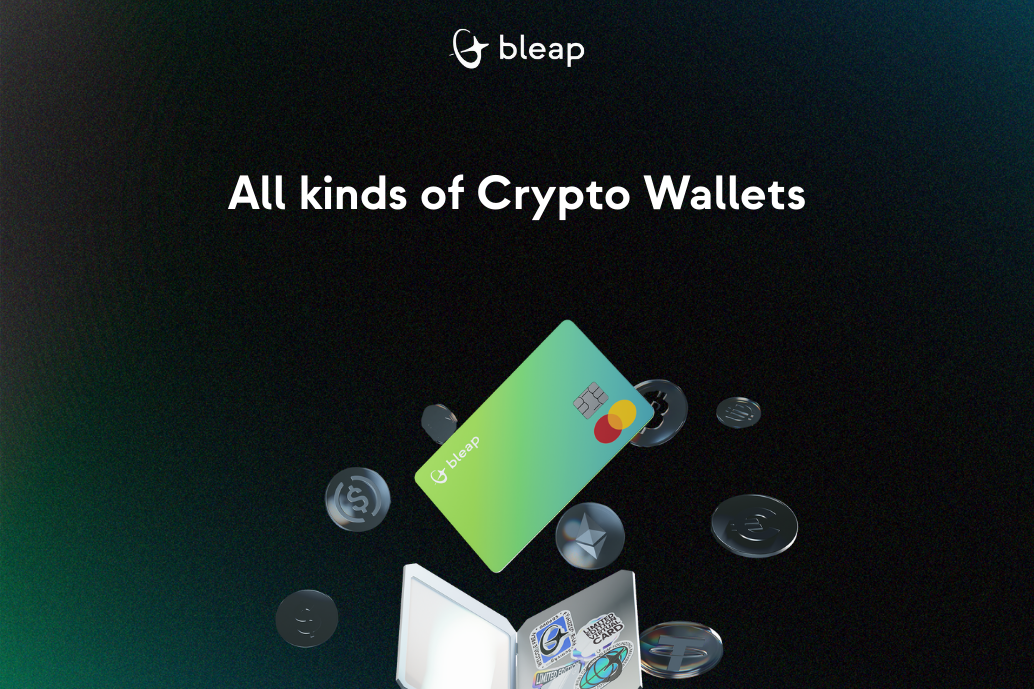
This content is for educational purposes only and should not be considered financial advice. Crypto investments carry risks, including loss of capital. Always do your own research or consult a licensed advisor before investing.
A crypto wallet stores your private keys and allows you to send, receive, and manage digital assets. Wallets can be hot (online), cold (offline), custodial, non-custodial, or advanced like hardware, multisig, and MPC wallets. The best choice depends on your goals: convenience, maximum security, or full ownership.
Without a wallet, you cannot store or transfer cryptocurrency. It is your entry point into the crypto ecosystem and ensures your assets remain under your control.
Hot wallets are connected to the internet at all times. This makes them ideal for frequent transactions but also more exposed to hacking attempts.
They come in three forms:
Hot wallets are practical for active users who send, trade, or spend crypto regularly.
Cold wallets remain offline, protecting your keys from online attacks. They are more secure but less convenient for daily use.
Main examples include:
These wallets are best for people who prefer to hold crypto long term without frequent transactions.
Custodial wallets are controlled by third parties, usually exchanges. They store your private keys and allow you to log in with a password. While this makes onboarding easy, it also means:
Non-custodial wallets remove that risk. You control the private keys, so only you can authorize transactions. This guarantees independence but also requires you to manage your keys responsibly.
Bleap offers a non-custodial model powered by MPC (Multi-Party Computation). Instead of a single key that can be lost or stolen, your key is split into encrypted shares across secure locations. This delivers:
→ Discover how MPC wallets work
Require one private key to access funds. Simple but risky if the key is lost or compromised.
Use a seed phrase to generate multiple keys. One backup phrase secures the entire wallet.
Need two or more approvals for transactions. This is common for companies or shared accounts.
Run on programmable logic that enables automation, recovery features, and spending controls.
Bring Web2-like experiences to crypto. They allow gasless transactions, social login, and flexible features.
MPC wallets (Multi-Party Computation) divide your private key into encrypted parts stored in different places. No single party ever holds the complete key.
This eliminates single points of failure. Even if one share is stolen, it is useless without the others.
Bleap integrates MPC into its free wallet, giving you institutional-grade security with the ease of instant payments, token swaps, and a Mastercard you can use worldwide.
Many crypto users hold more than one asset, and it’s impractical to manage a separate wallet for each blockchain. Multi-currency or multi-chain wallets solve this problem by supporting different coins and networks under one interface.
HD wallets generate multiple addresses from a single seed phrase, making it easier to manage several assets. MPC wallets and advanced non-custodial apps, like Bleap, allow you to store Bitcoin, Ethereum, stablecoins, and more without switching between wallets.
Exchanges are marketplaces where you can buy and sell crypto. While convenient, most exchanges act as custodians. They hold your private keys and ultimately control access to your funds. If the platform is hacked, freezes withdrawals, or goes bankrupt, your assets are at risk.
A crypto wallet shifts that control back to you. With a non-custodial wallet, only you hold the keys, and only you can authorize transactions. This makes wallets essential for anyone who wants to truly own their crypto.
For security, it’s best practice to use exchanges for trading and then withdraw assets to your personal wallet for storage. With Bleap, you can go further: keep funds safe in a non-custodial MPC wallet while also having the freedom to spend, swap, or cash out instantly with a Mastercard.
Every wallet type comes with risks. Understanding them helps you choose the right solution and secure your funds.
Hot wallets are convenient but exposed to online attacks. Custodial wallets can restrict withdrawals or lose funds if the provider fails. Hardware wallets are secure but can be lost, stolen, or damaged. Even advanced solutions like MPC require you to protect access credentials.
Best practices include:
The best wallet depends on who you are and how you plan to use crypto.
There is no single “best” wallet for every user, it depends on your goals:
Hardware wallets and MPC wallets offer the highest level of security.
Yes. Without a wallet, you cannot own or transfer cryptocurrency independently.
Bleap is completely free. You only pay the minimal blockchain gas fees.
Yes. With Bleap, you can withdraw directly to your IBAN.
Yes. Bleap issues a free Mastercard that lets you spend or withdraw Bitcoin and other crypto instantly.
Yes. Many wallets, including Bleap, allow direct swaps and sell options.
Crypto wallets exist in many forms, each with advantages and trade-offs. Hot wallets are fast, cold wallets are secure, custodial wallets are easy, and non-custodial wallets protect your independence.
Non-custodial MPC wallets: the safest balance of control and usability.
Features
Improvements
Bug fixes